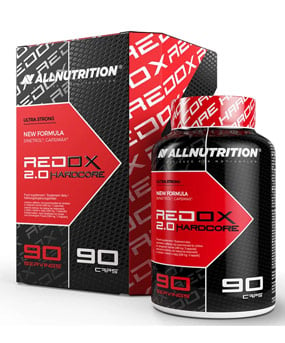Suplementacja glutaminą nie wpływa na poziom 3-metylo-histydyny w moczu, (jest to marker określający rozpad białek mięsniowych):
Effect of glutamine supplementation combined with resistance training in young adults.
Candow DG, Chilibeck PD, Burke DG, Davison KS, Smith-Palmer T.
College of Kinesiology, University of Saskatchewan, Saskatoon, Canada.
The purpose of this study was to assess the effect of oral glutamine supplementation combined with resistance training in young adults. A group of 31 subjects, aged 18-24 years, were randomly allocated to groups (double blind) to receive either glutamine (0.9 g x kg lean tissue mass(-1) x day(-1); n = 17) or a placebo (0.9 g maltodextrin x kg lean tissue mass(-1) x day(-1); n = 14 during 6 weeks of total body resistance training. Exercises were performed for four to five sets of 6-12 repetitions at intensities ranging from 60% to 90% 1 repetition maximum (1 RM). Before and after training, measurements were taken of 1 RM squat and bench press strength, peak knee extension torque (using an isokinetic dynamometer), lean tissue mass (dual energy X-ray absorptiometry) and muscle protein degradation (urinary 3-methylhistidine by high performance liquid chromatography). Repeated measures ANOVA showed that strength, torque, lean tissue mass and 3-methylhistidine increased with training (P < 0.05), with no significant difference between groups. Both groups increased their 1 RM squat by approximately 30% and 1 RM bench press by approximately 14%. The glutamine group showed increases of 6% for knee extension torque, 2% for lean tissue mass and 41% for urinary levels of 3-methylhistidine. The placebo group increased knee extension torque by 5%, lean tissue mass by 1.7% and 3-methylhistidine by 56%. We conclude that glutamine supplementation during resistance training has no significant effect on muscle performance, body composition or muscle protein degradation in young healthy adults.
______________________________
Entuzjaści glutaminy, często powołują się na badania kliniczne, gdzie w przebiegu wyniszczających chorób (nowotworowych), albo po rozległych poparzeniach podaje się (poprzez wlewy dozylne, a nie drogą pokarmową) glutaminę z zauważalnym skutkiem. Poniższa publikacja dowodzi, iż glutamina (wlewy dożylne) nie wpływa na syntezę białek mięśniowych:
The effect of glutamine on protein balance and amino acid flux across arm and leg tissues in healthy volunteers.
Svanberg E, Möller-Loswick AC, Matthews DE, Körner U, Lundholm K.
Department of Surgery, Sahlgrenska University Hospital, University of Göteborg, Göteborg, Sweden.
Abstract
BACKGROUND: Glutamine is important in nitrogen transportation and the physiological control of acid-base regulation. In addition, it has been assumed that glutamine regulates protein balance in skeletal muscles based on findings in both experimental and clinical studies. However, little information on glutamine and its effect on protein dynamics in normal individuals is available. Therefore, the aim of this study was to evaluate whether glutamine improves protein balance and uptake of various indispensable amino acids across peripheral tissue in healthy individuals.
MATERIAL AND METHODS: Standard primed constant infusions of L-[ring-2H5]phenylalanine and [ring 3,3-2H2]tyrosine (2 micromol kg(-1) h(-1)) were performed after overnight fast in five healthy male volunteers before and during infusions of a standard and a glutamine/tyrosine enriched amino acid solution. Flux measurements of amino acids (AA) including 3-methylhistidine, glucose, lactate and free fatty acids (FFA) were performed across arm and leg tissues.
RESULTS: Infusion of the standard AA solution (0.2 g N kg(-1) day(-1)) increased the net uptake of individual amino acids, but provision of the enriched solution (0.4 g N kg(-1) day(-1)) with increased amounts of glutamine and tyrosine seemed to compete unfavourably with the net uptake of other key amino acids as methionine and phenylalanine, which are indispensable in muscles for protein synthesis. Increased flux of amino acids across peripheral tissues did not influence on flux of glucose, free fatty acid and lactate.
CONCLUSIONS: Glutamine provision did neither stimulate protein synthesis nor attenuate breakdown of either globular or myofibrillar proteins in skeletal muscles of healthy volunteers.
_____________________________________________________
W poniższej próbie sprawdzano wpływ doraźnych dużych dawek glutaminy (0,3g na kg masy ciała) na możliwości wysiłkowe (siłowe). Badanie randomizowane, podwójna ślepa próba. Wynik nie jest zaskakujący. Brak efektu.
The effects of high-dose glutamine ingestion on weightlifting performance.
Antonio J, Sanders MS, Kalman D, Woodgate D, Street C.
Sports Science Laboratory, University of Delaware, Newark, Delaware 19716, USA.
Abstract
The purpose of this study was to determine if high-dose glutamine ingestion affected weightlifting performance. In a double-blind, placebo-controlled, crossover study, 6 resistance-trained men (mean +/- SE: age, 21.5 +/- 0.3 years; weight, 76.5 +/- 2.8 kg(-1)) performed weightlifting exercises after the ingestion of glutamine or glycine (0.3 g x kg(-1)) mixed with calorie-free fruit juice or placebo (calorie-free fruit juice only). Each subject underwent each of the 3 treatments in a randomized order. One hour after ingestion, subjects performed 4 total sets of exercise to momentary muscular failure (2 sets of leg presses at 200% of body weight, 2 sets of bench presses at 100% of body weight). There were no differences in the average number of maximal repetitions performed in the leg press or bench press exercises among the 3 groups. These data indicate that the short-term ingestion of glutamine does not enhance weightlifting performance in resistance-trained men.
______________________________________________
Odpowiedni poziom glutaminy jest ważny dla funkcjonowania układu odpornościowego, stąd też wiele osób, wiele kolorowych publikacji prasowych, wielu producentów poleca zażywać preparaty glutaminowe w celu poprawy odporności. Poniższa publikacja podważa słuszność takiego podejścia. Wg autorów bowiem, obniżenie poziomu glutaminy w plazmie - nie odzwierciedla poziomu glutaminy wewnątrz komórek. Suplementacja glutaminą może wyrównać obniżony poziom glutaminy w osoczu, ale - wg treści publikacji - nie wpływa to na procesy odpornościowe.
Exercise-induced immunodepression- plasma glutamine is not the link.
Hiscock N, Pedersen BK.
Copenhagen Muscle Research Centre and Department of Infectious Diseases, Rigshospitalet, University of Copenhagen, DK-2100 Copenhagen, Denmark.
Abstract
The amino acid glutamine is known to be important for the function of some immune cells in vitro. It has been proposed that the decrease in plasma glutamine concentration in relation to catabolic conditions, including prolonged, exhaustive exercise, results in a lack of glutamine for these cells and may be responsible for the transient immunodepression commonly observed after acute, exhaustive exercise. It has been unclear, however, whether the magnitude of the observed decrease in plasma glutamine concentration would be great enough to compromise the function of immune cells. In fact, intracellular glutamine concentration may not be compromised when plasma levels are decreased postexercise. In addition, a number of recent intervention studies with glutamine feeding demonstrate that, although the plasma concentration of glutamine is kept constant during and after acute, strenuous exercise, glutamine supplementation does not abolish the postexercise decrease in in vitro cellular immunity, including low lymphocyte number, impaired lymphocyte proliferation, impaired natural killer and lymphokine-activated killer cell activity, as well as low production rate and concentration of salivary IgA. It is concluded that, although the glutamine hypothesis may explain immunodepression related to other stressful conditions such as trauma and burn, plasma glutamine concentration is not likely to play a mechanistic role in exercise-induced immunodepression.
[pełen text: http://jap.physiology.org/content/93/3/813.full]
_________________________________________
Uzupełniając treść powyższych publikacji należy przypomnieć iż wbrew temu co się często sugeruje, glutamina nie jest aminokwasem egzogennym, i może być syntetyzowana w ustroju z innych aminokwasów, poniższa publikacja porusza to zagadnienie:
J Biol Chem. 1976 Feb 10;251(3):836-43.
Alanine and glutamine synthesis and release from skeletal muscle. II. The precursor role of amino acids in alanine and glutamine synthesis.
Garber AJ, Karl IE, Kipnis DM.
Abstract
The synthesis and release of alanine and glutamine have been studied in the intact rat epitrochlaris skeletal muscle preparation. Aspartate, cysteine, leucine, valine, methionine, isoleucine, serine, theronine, and glycine increased significantly the formation and release of alanine from muscle. Cysteine, leucine, valine, methionine, isoleucine, tyrosine, lysine, and phenylalanine increased the rate of glutamine synthesis. Only ornithine, arginine, and tryptophan were without effect on the synthesis of either alanine or glutamine. Half-maximal stimulation of alanine and glutamine formation by added amino acids was observed with concentrations ranging between 0.5 and 1.0 mM. Increases in alanine and glutamine formation were not accompanied by changes in pyruvate production or glucose uptake. The progressive decline in alanine and glutamine synthesis noted on prolonged incubation was prevented by the addition of amino acids to the incubation medium. Stimulation of alanine synthesis by added amino acids was unaffected by inhibition of glycolysis with iodoacetate. Inhibition of alanine aminotransferase with aminooxyacetate significantly decreased alanine formation. Pyruvate and ammonium chloride did not increase further the rate of either alanine or glutamine formation above that produced by added amino acids. These data indicate that most amino acids are precursors for alanine and glutamine synthesis in skeletal muscle. A general mechanism is presented for the de novo formation of alanine from amino acids in skeletal muscle, and the importance of proteolysis for the supply of amino acid precursors for alanine and glutamine synthesis is discussed.
_______________________________________________________
Są przesłanki by uznać iż dobrym sposobem na podniesienie poziomu glutaminy we krwi jest suplementacja BCAA. BCAA wyraznie wpływa na odpornosc, w tym badaniu sugeruje się że poprzez relację BCAA-glutamina, aczkolwiek możliwe, że ten proces ma inne podłoże:
The effect of BCAA supplementation upon the immune response of triathletes.
Bassit RA, Sawada LA, Bacurau RF, Navarro F, Costa Rosa LF.
Department of Physiology and Biophysics, Institute of Biomedical Sciences, University of São Paulo, Brazil.
Abstract
INTRODUCTION: Intense long-duration exercise could lead to immune suppression through a decrease in the circulating level of plasma glutamine. The decrease in plasma glutamine concentration as a consequence of intense long-duration exercise was reversed, in some cases, by supplementing the diet of the athletes with branched-chain amino acids (BCAA). To better address this question, we have evaluated some blood parameters (lymphocyte proliferation, the level of plasma cytokines, plasma glutamine concentration, and in vitro production of cytokines by peripheral blood lymphocytes) before and after the São Paulo International Triathlon, as well as the incidence of symptoms of infections between the groups. METHODS: Twelve elite male triathletes of mean age 25.5 +/- 3.2 yr (ranging from 21.4 to 30.1 yr), weighing 74.16 +/- 3.9 kg, swam 1.5 km, cycled 40 km, and ran 10 km (Olympic triathlon) in the São Paulo International Triathlon held in April 1997 and April 1998. In both events, six athletes received BCAA and the others, placebo. RESULTs: Athletes from the BCAA group (BG) presented the same levels of plasma glutamine, before and after the trial, whereas those from the placebo group showed a reduction of 22.8% in plasma glutamine concentration after the competition. Changes in the proliferative response of peripheral blood lymphocytes were accompanied by a reduction in IL-1 production after exercise (22.2%), which was reversed by BCAA supplementation (20.3%), without changes in IL-2 production. DISCUSSION: The data obtained show that BCAA supplementation can reverse the reduction in serum glutamine concentration observed after prolonged intense exercise such as an Olympic triathlon. The decrease in plasma glutamine concentration is paralleled by an increased incidence of symptoms of infections that results in augmented proliferative response of lymphocytes cultivated in the absence of mitogens. The prevention of the lowering of plasma glutamine concentration allows an increased response of lymphocytes to ConA and LPS, as well as an increased production of IL-1 and 2, TNF-alpha, and IFN-gamma, possibly linked to the lower incidence of symptoms of infection (33.84%) reported by the supplemented athletes.
_______________________________________
Branched-chain amino acid supplementation and the immune response of long-distance athletes.
Bassit RA, Sawada LA, Bacurau RF, Navarro F, Martins E Jr, Santos RV, Caperuto EC, Rogeri P, Costa Rosa LF.
Department of Histology and Embryology, Institute of Biomedical Sciences, University of São Paulo, São Paulo, Brazil.
Abstract
OBJECTIVE: Intense long-duration exercise has been associated with immunosuppression, which affects natural killer cells, lymphokine-activated killer cells, and lymphocytes. The mechanisms involved, however, are not fully determined and seem to be multifactorial, including endocrine changes and alteration of plasma glutamine concentration. Therefore, we evaluated the effect of branched-chain amino acid supplementation on the immune response of triathletes and long-distance runners. METHODS: Peripheral blood was collected prior to and immediately after an Olympic Triathlon or a 30k run. Lymphocyte proliferation, cytokine production by cultured cells, and plasma glutamine were measured. RESULTS: After the exercise bout, athletes from the placebo group presented a decreased plasma glutamine concentration that was abolished by branched-chain amino acid supplementation and an increased proliferative response in their peripheral blood mononuclear cells. Those cells also produced, after exercise, less tumor necrosis factor, interleukins-1 and -4, and interferon and 48% more interleukin-2. Supplementation stimulated the production of interleukin-2 and interferon after exercise and a more pronounced decrease in the production of interleukin-4, indicating a diversion toward a Th1 type immune response. CONCLUSIONS: Our results indicate that branched-chain amino acid (BCAA) supplementation recovers the ability of peripheral blood mononuclear cells proliferate in response to mitogens after a long distance intense exercise, as well as plasma glutamine concentration. The amino acids also modify the pattern of cytokine production leading to a diversion of the immune response toward a Th1 type of immune response.
___________________________________
Zmieniony przez - faftaq w dniu 2010-12-12 10:07:53





 Krzysztof Piekarz
Krzysztof Piekarz

 wbijam co mam wbić
wbijam co mam wbić 


 więc jest lekko mowiąc tragedia.
więc jest lekko mowiąc tragedia.



